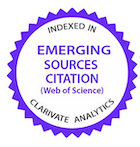Soroepidemiologia de leptospirose em equinos da região de Santarém, Pará
DOI:
https://doi.org/10.1590/1809-6891v24e-74800EResumo
Leptospira spp. é a bactéria causadora da leptospirose, uma doença endêmica, distribuída mundialmente, de caráter zoonótico responsável por gerar impacto sanitário e também econômico. Esse microrganismo, com característica espiralada, infecta mamíferos, dentre eles, os equinos. Estes animais, podem apresentar a doença na forma assintomáticos ou clínica. Desta forma, o atual estudo objetivou analisar amostras equinas na região de Santarém- Pará. Analisou-se 88 amostras de animais que não apresentavam histórico de vacinação contra a leptospirose, através da técnica da Microaglutinação Microscópica (MAT), utilizando um painel de13 sorovares, pertencentes a dez diferentes sorogrupos. Desses animais, 58 foram soropositivos (65,90%), distribuídos em 28 (48,3%) amostras soro reagentes para Pyrogenes, 24 (41,4%) para Autumnalis, 18 (31%) para Icterohaemorrhagiae e 16 (27,6%) para Grippotyphosa. Mesmo não havendo suspeita de leptospirose, os animais apresentaram diferentes frequências sorológicas. Considerando-se o conhecido impacto da leptospirose na saúde humana e animal, nossos resultados apontam que é de suma importância estabelecer medidas de prevenção para reduzir perdas econômicas e não oferecer riscos à saúde pública.
Palavras-chave: Leptospira spp.; equídeos; epidemiologia; saúde pública; Pará.
Downloads
Referências
Haake DA, Levett PN. Leptospirosis in humans. Curr. Top. Microbiol. Immunol. 2015;387:65-97. https://doi.org/10.1007/978-3-662-45059-8_5
Cilia G, Bertelloni F, Fratini F. Leptospira Infections in Domestic and Wild Animals. Pathogens. 2020;9(7):573. https://doi.org/10.3390/pathogens9070573
Schneider MC, Jancloes M, Buss DF, Aldighieri S, Bertherat E, Najera P, et al. Leptospirosis: a silent epidemic disease. Int J Environ Res Public Health. 2013;10(12):7229-7234. https://doi.org/10.3390/ijerph10127229
Browne ES, Callefe JLR, Jesus ERS, Zeppelini CG, Cremonese C, Costa F. A Systematic Review of the geographic distribution of pathogenic Leptospira serovars in the Americas, 1930-2017. An Acad Bras Cienc. 2022:94(3).
Adler B, De La Peña-Moctezuma A. Leptospira and leptospirosis. Vet. Microbiol.. 2010;140: 287-296. https://doi.org/10.1016/j.vetmic.2009.03.012
Bezerra DC. Pesquisa de aglutininas antileptospira em soros sanguíneos de auninos (Equus Asinus) e de condutores de veículos de tração animal na cidade de São Luís, MA, Brasil. Ciênc. Anim. Bras. 2010;11(4):931-937.
Deano ACO, Souza MSB. Uveíte recorrente eqüina (cegueira da lua). Cienc. Rural. 2000;30(2):373-380.
Hamond C, Martins G, Lawson-Ferreira R, Medeiros MA, Lilenbaum W. The role of horses in the transmission of leptospirosis in an urban tropical area. Epidemiol Infect 2012;141(1):33-35. https://doi.org/10.1017/S0950268812000416
Neta EIB, de Brito Neto J, Aragão CPM, de Melo Leite AKR. Leptospirose em equino: Uma revisão. Revista Brasileira de Higiene e Sanidade Animal 2016;10(4):841-857. http://dx.doi.org/10.5935/1981-2965.20160069
Aguiar DM, Cavalcante GT, Lara MCCSH, Villalobos EMC, Cunha EMS, Okuda LH et al. Prevalência de anticorpos contra agentes virais e bacterianos em equídeos do município de Monte Negro, Rondônia, Amazônia Ocidental Brasileira. Braz J Vet Res Anim Sci. 2008;45(4):269-276.
Moraes CCG, Kuroda RBS, Pinho APVB, Ywasaki F, Meneses AMC, Martins IV, et al. Pesquisa de anticorpos para sorovares de Leptospira interrogans patogênicas em equídeos criados na ilha de Algodoal, Estado do Pará. Rev. Bras. Cienc. Agrar. 2010;53(2):188-194.
Sousa IKF, Silva RLC, Sousa RS, Vieira CEM, Melo S, Quevedo GP, et al. Frequency of leptospirosis in horses in Manaus and metropolitan region in Amazonas State, Brazil. Braz J Vet Anim Sci. 2020;57(4):e172607.
Cole JR, Sulzer CR, Pursell AR. Improved microtechnique for the leptospiral microscopic agglutination test. Appl Microbiol. 1973;25(6):976-80.
Galton MM, Sulzer CR, Santa Rosa CA, Fields MJ. Application of a microtechnique to the agglutination test for leptospiral antibodies. Appl Microbiol. 1965;13(1):81-5.
World Health Organization – WHO. Leptospirosis. Geneva: WHO; 2012. Available in: http://www.wpro.who.int/mediacentre/factsheets/ fs_13082012_leptospirosis/en/. Accessed in: 25/03/2022.
Hashimoto VY, Gonçalves DD, Silva FG, Oliveira RC, Alves LA, Reichmann P, et al. Occurrence of antibodies against Leptospira spp. in horses of the urban area of Londrina, Paraná, Brazil. Revista do Instituto de Medicina Tropical de São Paulo. 2007;49(5):327-330.
Gomes AHB, Oliveira FCS, Cavalcanti LA, Conceição IR, Santos GR, Ramalho EJ, et al. Ocorrência de aglutininas anti-leptospira em soro de equinos no estado da Bahia. Rev. Bras. de Saude e Prod. Anim. 2007;8(3):144-151.
Blatti S, Overesch G, Gerber V, Frey J, Hüssy D. Seroprevalence of Leptospira spp. in clinically healthy horses in Switzerland. Schweiz Arch Tierheilkd. 2011;153(10):449-56. https://doi.org/10.1024/0036-7281/a000247
Houwers DJ, Goris MGA, Abdoel T, Kas JA, Knobbe SS, van Dongen AM, et al. Agglutination antibodies against pathogenic Leptospira in healthy dogs and horses indicate common exposure and regular occurrence of subclinical infections. Vet. Microbiol. 2011;148:449-451.
Ministério da Saúde. Guia de vigilância em saúde. Brasília: Ministério da Saúde; 2014:652. Available in: https://bvsms.saude.gov.br/bvs/publicacoes/guia_vigilancia_saude_3ed.pdf. Accessed in: 13/03/2022.
Fiocruz- Instituto Oswaldo Cruz. Novo protocolo para leptospirose. Rio de Janeiro: IOC/ Fiocruz; 2013. Available in: http://www.fiocruz.br/ioc/cgi/cgilua.exe/sys/start.htm?infoid=1737&sid=32. Accessed in: 15/03/2022.
Hamond C, Pinna MH, Martins G, Medeiros MA, Lilenbaum W. Infection by Leptospira spp. in Cattle in a Tropical Region, Rio de Janeiro, Brazil. Am J Trop Med Hyg. 2015;92(1):210-210.
Morais DA, Costa DF, Nunes BC, Santos CSAB, Alves CJ, Azevedo SS. Seroepidemiological survey for leptospirosis in equines from semiarid region of Paraíba state, Northeastern Brazil. Semin Cienc Agrar. 2019;40(5):2079-2086.
Bastiani MP, Lovato LT, von Laer AE, Pötter L, Rodrigues RO, Souza BC, et al. Occurrence of Leptospira spp. and factors associated with the infection in horses from a military contingent in the Rio Grande do Sul State, Brazil. Braz J Vet Res Anim Sci. 2021;58:e180884.
Hack JD, Mousquer MA, Ries AS, Dewes C, de Souza RP, Ferreira NO, et al. Soroprevalência de Leptospira interrogans e flaviviroses em equinos da cidade de Pelotas e região, no Rio Grande do Sul. Science and Animal Health, 2018; 6(3): 228-246. https://doi.org/10.34117/bjdv6n8-302
Pinto PS, Libonati H, Lilenbaum W. A systematic review of leptospirosis on dogs, pigs, and horses in Latin America. Trop. Anim. Health Prod. 2017;49:231–238. https://doi.org/10.1007/s11250-016-1201-1208
Da Silva AS, Jaguezeski AM, Laber IF, von Laer AE, Lovato LT, da Silva MO, et al. Leptospira spp. in horses in southern Brazil: Seroprevalence, infection risk factors, and influence on reproduction. Comp. Immunol. Microbiol. Infect. Dis.. 2020;73: 101552.
Finger MA, de Barros Filho IR, Leutenegger C, Estrada M, Ullmann LS, Langoni H, et al. Serological and molecular survey of Leptospira spp. among cart horses from an endemic area of human leptospirosis in Curitiba, southern Brazil. Rev. Inst. Med. Trop. São Paulo. 2014;56:473–476. https://doi.org/10.1590/s0036-46652014000600003
Vera E, Taddei S, Cavirani S, Schiavi J, Angelone M, Cabassi CS, et al. Leptospira seroprevalence in Bardigiano horses in Northern Italy. Anim. 2019;10(1):23. https://doi.org/10.3390/ani10010023
Meny P, Iglesias T, Menéndez C, Quintero J, Ríos C, Ashfield N, et al. Seroprevalence of anti-Leptospira antibodies in equines and associated workers-Isolation of Leptospira interrogans serogroup Canicola from equine urine. Zoonoses Public Health. 2022;69(5):526-536. https://doi.org/10.1111/zph.12942
Downloads
Publicado
Como Citar
Edição
Seção
Licença
Copyright (c) 2023 Ciência Animal Brasileira / Brazilian Animal Science

Este trabalho está licenciado sob uma licença Creative Commons Attribution 4.0 International License.
Autores que publicam nesta revista concordam com os seguintes termos:
- Autores mantém os direitos autorais e concedem à revista o direito de primeira publicação, com o trabalho simultaneamente licenciado sob a Licença Creative Commons Attribution que permite o compartilhamento do trabalho com reconhecimento da autoria e publicação inicial nesta revista.
- Autores têm autorização para assumir contratos adicionais separadamente, para distribuição não-exclusiva da versão do trabalho publicada nesta revista (ex.: publicar em repositório institucional ou como capítulo de livro), com reconhecimento de autoria e publicação inicial nesta revista.
- Autores têm permissão e são estimulados a publicar e distribuir seu trabalho online (ex.: em repositórios institucionais ou na sua página pessoal) a qualquer ponto antes ou durante o processo editorial, já que isso pode gerar alterações produtivas, bem como aumentar o impacto e a citação do trabalho publicado (Veja O Efeito do Acesso Livre).






























